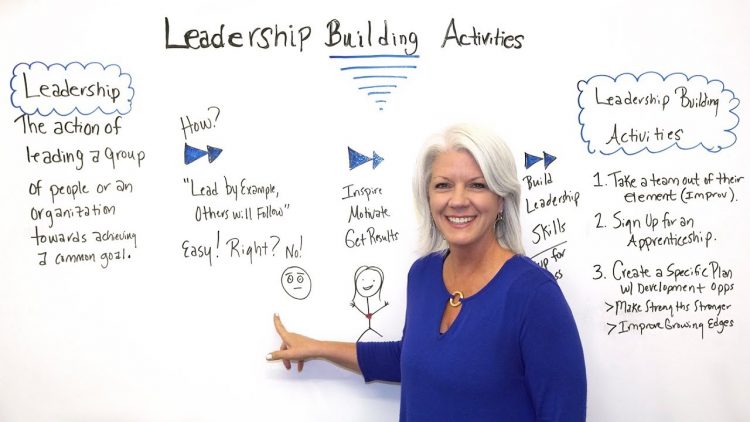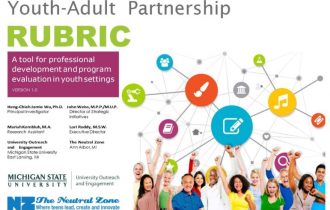Developing Leadership Skills in Teens: A Comprehensive Guide

Introduction
Leadership skills are crucial for success in today’s rapidly changing world. Developing these skills at a young age not only prepares teenagers for future leadership roles but also helps them become confident, empathetic, and responsible individuals. This comprehensive guide aims to provide insights and strategies for fostering leadership skills in teens. By incorporating technology and real-world examples, we can empower young individuals to become effective leaders who can make a positive impact on their communities and beyond.
I. Nurturing Self-Awareness: The Foundation of Leadership
1.1 Discovering Strengths and Passions: Unleashing Potential
The first step in developing leadership skills is nurturing self-awareness. Teenagers need to understand their strengths, passions, and areas for growth. Encourage them to explore different activities and interests, both within and outside of school. Technology can play a valuable role in this process. Online self-assessment tools and personality quizzes can help teens identify their unique qualities. As the American author and management expert, Peter Drucker, famously said, “The best way to predict the future is to create it.” By understanding themselves, teens can create a path towards leadership that aligns with their strengths and passions.
1.2 Encouraging Reflection and Goal Setting: Charting a Course
Reflection and goal setting are essential for personal growth and leadership development. Encourage teenagers to reflect on their experiences, both successes, and failures, and draw lessons from them. Technology can be utilized through journaling apps or online platforms that facilitate self-reflection and goal tracking. Additionally, guide teens in setting SMART (Specific, Measurable, Achievable, Relevant, and Time-bound) goals that align with their aspirations. By setting clear objectives and breaking them down into actionable steps, teens can chart a course towards leadership development. As former First Lady of the United States, Michelle Obama, once said, “You may not always have a comfortable life, and you will not always be able to solve all the world’s problems at once. But don’t ever underestimate the impact you can have because history has shown us that courage can be contagious, and hope can take on a life of its own.”
II. Cultivating Essential Leadership Traits
2.1 Communication Skills: Amplifying Influence
Effective communication is at the core of leadership. Encourage teens to develop their verbal, written, and non-verbal communication skills. Technology offers various resources for honing these skills, such as online courses, public speaking apps, and video editing tools. Encourage teenagers to practice active listening, articulate their thoughts clearly, and adapt their communication style to different audiences. Providing them with opportunities to deliver presentations or engage in debates can further enhance their communication abilities. As leadership expert John C. Maxwell once stated, “A leader is one who knows the way, goes the way, and shows the way.”
2.2 Emotional Intelligence: Building Empathy and Resilience
Emotional intelligence is another crucial trait for effective leadership. Help teens develop their empathy and emotional resilience by encouraging them to understand and regulate their emotions. Technology can provide access to mindfulness apps, virtual support networks, and self-help resources that promote emotional well-being. Encourage teenagers to actively listen and empathize with others, seeking to understand different perspectives. By fostering emotional intelligence, teens can build stronger relationships, inspire trust, and navigate challenges with resilience. As the American author and motivational speaker, Maya Angelou, wisely said, “I’ve learned that people will forget what you said, people will forget what you did, but people will never forget how you made them feel.”
III. Practical Leadership Opportunities
3.1 Volunteering and Community Engagement: Making a Difference
Practical leadership opportunities, such as volunteering and community engagement, allow teens to apply their skills in real-world settings. Encourage them to seek out local organizations or initiatives aligned with their interests. Technology can facilitate this process by connecting teens with virtual volunteering opportunities or platforms that match them with relevant community projects. Through volunteering, teenagers can develop leadership skills, collaborate with diverse groups, and make a positive impact in their communities. As Mahatma Gandhi, the leader of India’s independence movement, famously said, “The best way to find yourself is to lose yourself in the service of others.”
3.2 Leadership Programs and Workshops: Learning from Experts
Participating in leadership programs and workshops provides teens with structured learning experiences and exposure to leadership experts. Many organizations offer leadership development programs specifically designed for teenagers. These programs cover topics such as decision-making, team-building, and conflict resolution. Technology can supplement these programs by offering online leadership courses, virtual mentorship opportunities, and access to inspiring leadership talks and TEDx talks. By engaging with experienced leaders and fellow aspiring leaders, teens can broaden their perspectives and acquire valuable insights and skills.
Conclusion
Developing leadership skills in teenagers is an investment in their future and the betterment of society. By nurturing self-awareness, cultivating essential leadership traits, and providing practical leadership opportunities, we can empower teenagers to become confident, empathetic, and responsible leaders. As American entrepreneur and inventor Steve Jobs once said, “Your work is going to fill a large part of your life, and the only way to be truly satisfied is to do what you believe is great work. And the only way to do great work is to love what you do.” Let us guide and support our teens in their journey towards leadership, enabling them to make a positive impact and create a better world.


